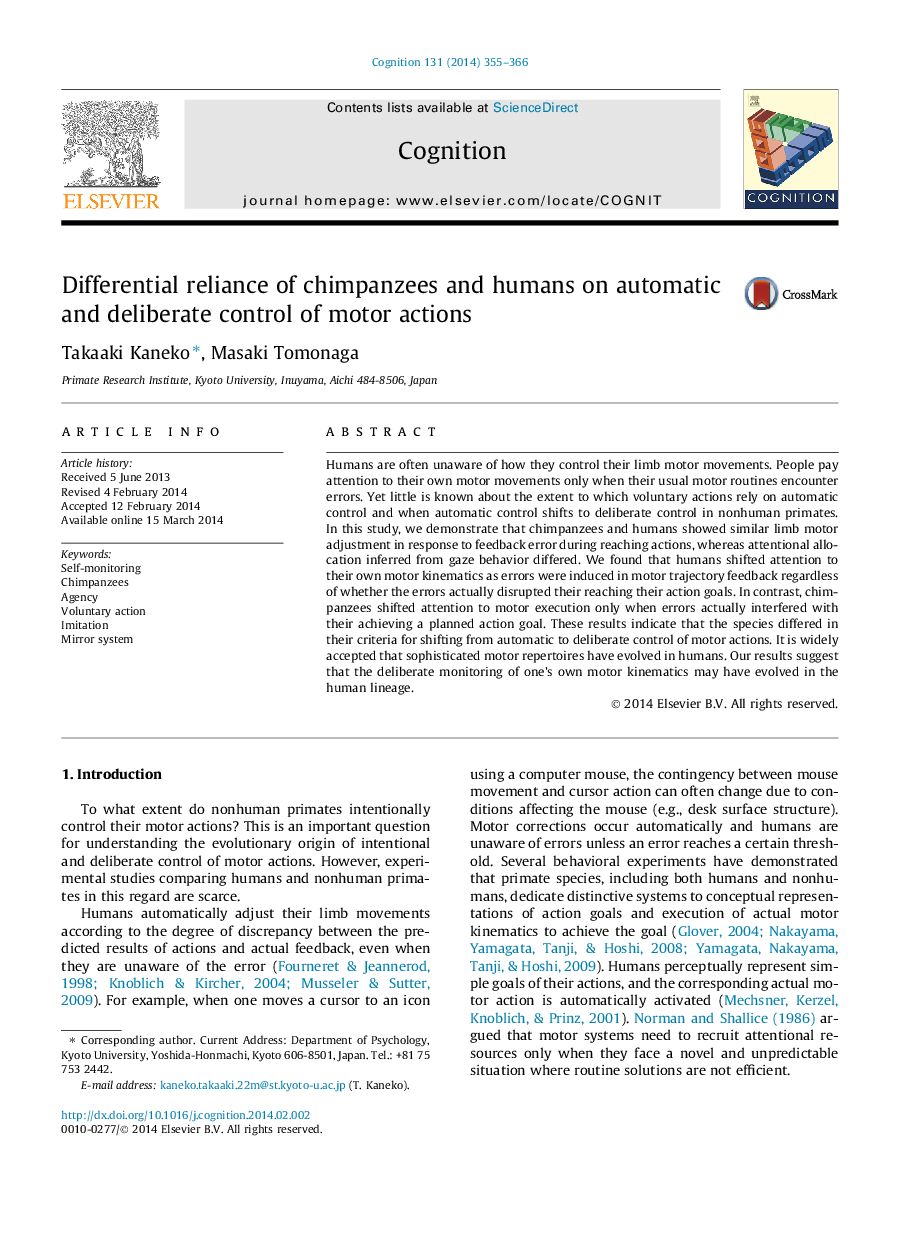| Article ID | Journal | Published Year | Pages | File Type |
|---|---|---|---|---|
| 926699 | Cognition | 2014 | 12 Pages |
•We examined the shift from automatic to deliberate motor control in chimpanzees and humans.•Both species performed an aiming task under perturbation between visual feedback and motor action.•The two species were similar with respect to online motor correction in response to feedback error.•The attentional allocation for one’s own motor kinematic differed across species.•The deliberate monitoring of one’s own motor kinematics may have evolved in the human lineage.
Humans are often unaware of how they control their limb motor movements. People pay attention to their own motor movements only when their usual motor routines encounter errors. Yet little is known about the extent to which voluntary actions rely on automatic control and when automatic control shifts to deliberate control in nonhuman primates. In this study, we demonstrate that chimpanzees and humans showed similar limb motor adjustment in response to feedback error during reaching actions, whereas attentional allocation inferred from gaze behavior differed. We found that humans shifted attention to their own motor kinematics as errors were induced in motor trajectory feedback regardless of whether the errors actually disrupted their reaching their action goals. In contrast, chimpanzees shifted attention to motor execution only when errors actually interfered with their achieving a planned action goal. These results indicate that the species differed in their criteria for shifting from automatic to deliberate control of motor actions. It is widely accepted that sophisticated motor repertoires have evolved in humans. Our results suggest that the deliberate monitoring of one’s own motor kinematics may have evolved in the human lineage.
